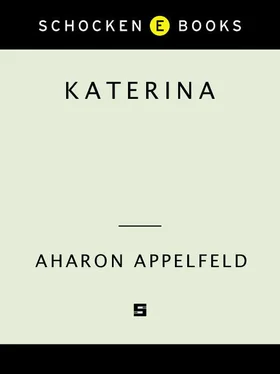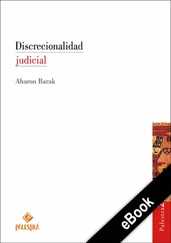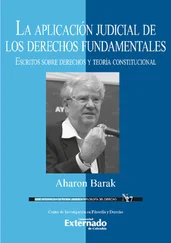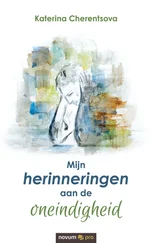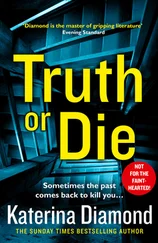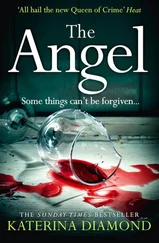Mostly, they would sell until evening. Then they would pack up the remainder of their wares and disappear. Once a Jew stood in our courtyard and offered us his wares. He was tall and thin, fringed with a black beard, and his neck was slender and long. Such a bare neck I had never seen in my life.
Afterward, I got used to them, and sometimes I would steal a piece of cloth or a little packet of candy. I particularly remember those thefts. There was a kind of victory over fear in them and a repressed joy, because you were allowed to steal from them—or as my mother used to say, theft from a thief is permitted.
Once my cousin Maria called to me, “The ghosts have arrived, and you’re here?”
“What ghosts are you talking about?”
“The ghosts with the suitcases.”
“You frightened me, Maria.”
“No need to be frightened,” she said coldly. “If you get used to them, you can get just what you need out of them.”
My cousin Maria was seven years older. She had worked for the Jews, and she knew them at close hand. She, too, like all of us, despised them, but she already knew that they weren’t openly harmful, that they didn’t poison you. She had dresses and underwear she had received from them. Once she brought an embroidered slip and gave it to me as a present.
My cousin Maria, may she rest in peace, was, God forgive her, as cold as ice. She didn’t know the meaning of fear. More than once I saw her stick a pig. She stabbed it without repugnance, and when the poor thing squealed, the expression on her face didn’t change. I once heard her cursing like a man. In the spring, I remember, she went up to one of the booths, chose a pretty shirt, and asked its price. The Jew named a sum.
“I don’t have any money today,” she said. “Next time I’ll pay you.”
“I won’t sell it to you,” said the Jew.
“What do you mean, you won’t sell?” She spoke to him softly and firmly. “You’ll be sorry.”
“I haven’t wronged anyone.” He raised his voice.
“If you don’t give it to me, my brother will slaughter you in the field,” she hissed.
“I’m not afraid,” the Jew shouted.
“Too bad to die for a shirt,” she whispered, running away with it. The Jew was about to run after her, and he did take a couple of steps, but he didn’t go far. That very night Maria explained to me, “The Jews, unlike us, are afraid of death. That fear is their undoing. That’s their weakness. We’ll jump off a bridge, but they won’t. That’s the difference, understand?” Maria, God forgive her, was a brazen woman. I myself was afraid of her.
In the village, the Jews used to appear at any time and in places you wouldn’t have expected them, near the lake or behind the chapel. The way they dressed made them very conspicuous. People would beat them or run after them, but, like the crows, they used to return, in every season of the year.
“Why are they like that?” I once asked my mother.
“Don’t you know? They killed Jesus.”
“They?”
“They.”
I didn’t ask any more. I was afraid to ask. They filled my dreams and blackened many nights. They always had the same look: thin, swarthy, hopping on birds’ legs, and suddenly rising up. Once, I remember, a Jew crossed my path in the middle of the field. He handed me a piece of candy, but so great was my fear that I took to my heels as though fleeing a ghost.

3
FOR TWO DAYS I trampled along. Fall was everywhere, rain and thick fog, but more bitter than anything was my father’s indifferent gaze. He abandoned me the way you abandon a sick animal that you don’t want put down right away. I wasn’t afraid of dogs. I was used to dogs. Every time a dog crossed my path, I stood still and made friends with it, for I understand the language of dogs. Judging by the way they bark, I know whether they’re content or angry. Wild dogs are mute. It’s hard to admit it, but we’re closer to animals than to humans. How many friends does a person acquire in his lifetime?
Between one rainstorm and another I would pick an apple or a pear, sit down, and try to cling to my mother’s memory. With no living soul nearby, a person draws close to the dead. My mother was a bitter woman in her lifetime, and in death her bitterness increased. More than once I asked mercy for her. Even in the world of truth she’s consumed by bitterness. Doesn’t death release us from our worldly accounts? Is everything we did, all the stupidity and filth, eternally bound to us? At night, I slept on a threshing floor or in an abandoned shed. From my earliest childhood I was accustomed to damp. Anyone who was born in a village knows that life is no party. I didn’t cry, and I didn’t blame anyone, but I lingered in the chapels and prayed. In the low, miserable chapels I learned how to pray. It’s hard to overcome pride and bend the knee, but when a person leaves his home and he has no other home in the world, his knees bend by themselves. In those poor chapels one learns how to approach one’s fellow man with a humble heart. Near those houses of worship, people handed me a slice of cake, a piece of cheese. I even got a coin from one peasant. Not every time. I occasionally saw a peasant woman come out of the chapel and fall upon her animal, beating it savagely, as if it weren’t a dumb beast but a notorious criminal.
I got to Strassov one night, a town consisting of a street and a busy railroad station. Maria had told me a lot about the town, but the sight of it wasn’t the way I had imagined it. The people poured out and crowded together near the exit, trains came and went, and tall, hearty men stood on the platforms and loaded sacks of grain.
“Don’t let them nuzzle you,” Maria had warned me.
Later, the station emptied out, the trains stopped running, the buffet was locked, and beggars and drunks popped out of the dark corners.
“Who are you?” one of the drunks asked me.
I was startled, and my mouth was dumb.
“From what village?” he kept asking.
I told him.
“Come with us; soon we’ll make some coffee.”
That’s how I got to know the night world of the railroad station. I was sixteen years old. They all called me the baby girl. That wasn’t an indulgent term there. If a person doesn’t give his due, he’s thrown out even from that cold, dark corner.
The next day I started washing dishes in the restaurant. Anyone born in a village is used to abuse. My mother beat me and my father didn’t spare my body, either. The restaurant owner was no better than they. In the evening, before paying me, he would feel my breasts. At night, many hands pawed me. It was cold in the dark, and the poor people’s clothing gave off a strong smell of damp. That foul smell came to cling to my clothes, too. “The body’s not holy, nothing will happen to you” said one of the drunks, reaching out and feeling my crotch.
The autumn turned out to be cold in the city. If I had had a room, I would have run away. A person without a room is like a stray dog. Everyone molests him. Having no choice, I used to sit, give them my things, and take theirs. I gave them the pennies that I earned, and they gave me a drink and a cup of coffee. I knew that drink deadens fear. My mother didn’t drink vodka outside the house, but during the dark winter days she used to sit alone and get drunk. When she got drunk, a hint of her youth would return to her face. She used to tell me about her native village, about the festivals and celebrations. I liked those rare hours very much, but the next day she would get up bitter and furious, casting her dread upon me.
Читать дальше
